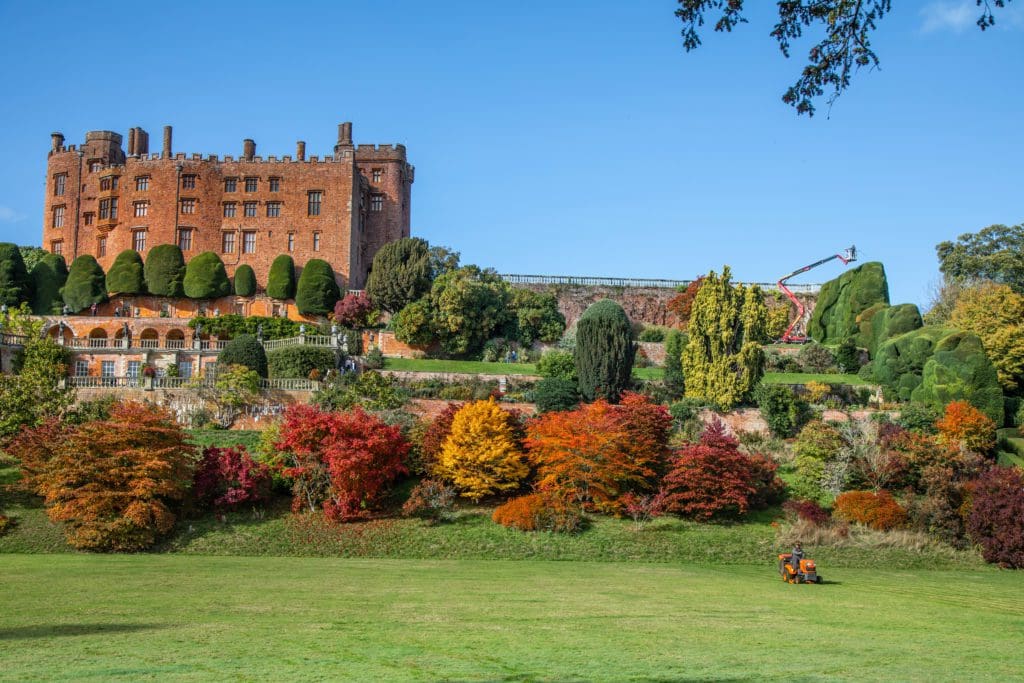Every autumn, an experienced National Trust Cymru gardener takes to the skies to trim the historic, 30-foot-high yew hedges at Powis Castle and Garden.
The famous yews are almost 300 years old and are well-known for their unique cloud-like shape and dramatic display cascading over the Italianate terraces. Originally planted in the 18th century, they’ve survived changes in style, fashion, and design over hundreds of years.


Still standing proud below the medieval castle today, it takes one committed gardener approximately two months to ensure the topiary is in tip top condition, ready for another year of impressing visitors to this world-famous garden.
Dan Bull, Gardener at Powis Castle and Garden, said: “It’s not as scary as it might look. I’ve been doing it for years and I’m harnessed in so I can move around in the cherry picker easily and swap between the long and short shears.
“It’s great to have some time out doing something different, and with amazing views of the Severn Valley, I can’t complain. I get a great sense of achievement and satisfaction when it’s all finished, and the tumps, as we refer to them, are back to the shape that our visitors, staff, and volunteers admire so much.”
Before cherry-pickers and hedge cutters, it used to take 10 men four months to clip all the box and yew hedges at Powis Castle. They used hand shears and balanced on long ladders, tied together where necessary, to reach the top of the taller yews.
Years ago, the yews were clipped into small, formal cones or pyramids. However, by the end of the 18th century English landscape gardening, made popular by figures such as Lancelot ‘Capability’ Brown, saw the yew trees growing naturally to become more ‘tree-like’. This lasted until formal gardening arrived in the Victorian Era and the yews were once more clipped back into shape giving them the unusual structure that is still so striking to visitors today.
The garden at Powis Castle is open 363 days a year. Opening times vary depending on the time of year, please check website before travelling. National Trust members go free.









Leave a Reply
View Comments